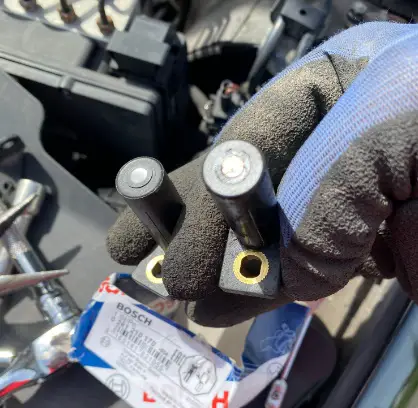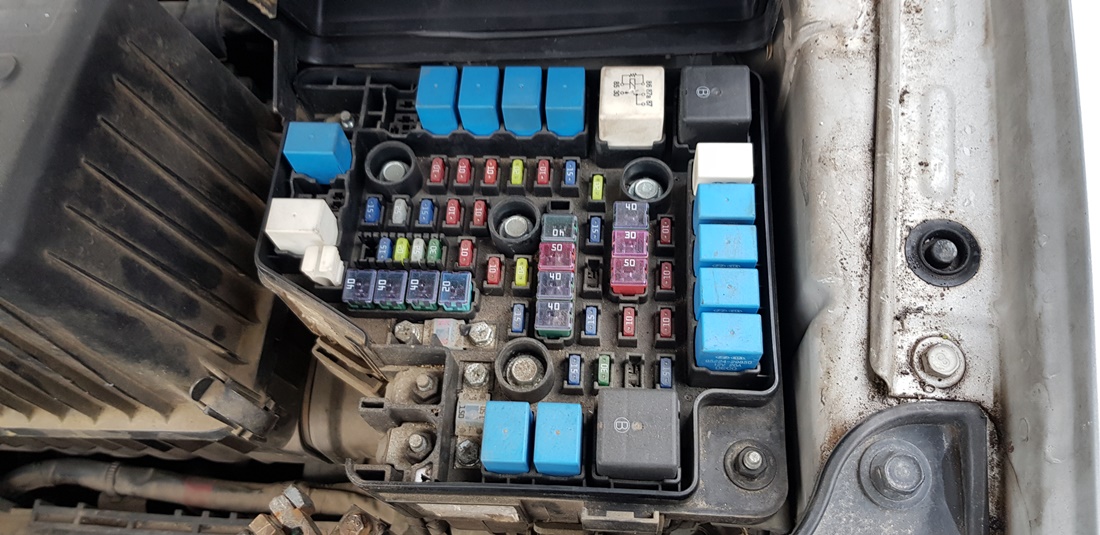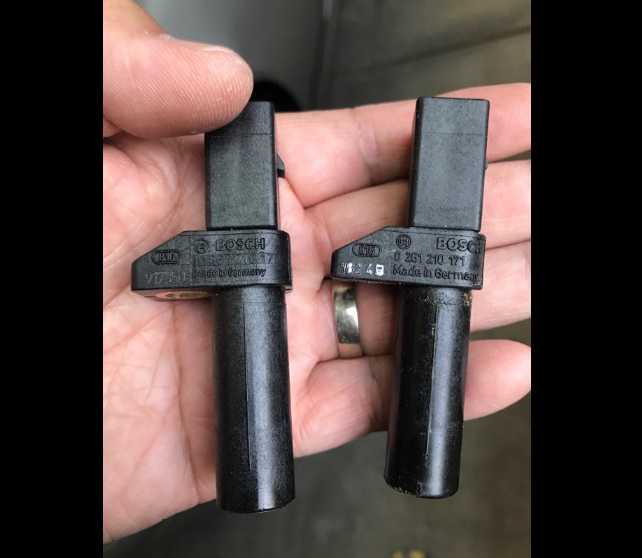If you’ve noticed that your car cooling fan is loud lately, there are a few possible explanations. I will list five of the most common reasons why a car cooling fan might be too loud.
By understanding why your car’s cooling fan is louder than it should be, you can take steps to fix the problem and keep your car running smoothly!
- Key Takeaway
- What Does a Car Radiator Fan Do?
- 5 Reasons Why Your Car’s Cooling Fan Is Louder Than It Should Be
- 1. Dirty fan blades can make your radiator fan louder
- 2. Problem with the car’s cooling system can make your radiator fan louder
- 3. Loose or broken radiator fan belt can make a loud noise in vehicles
- 4. Faulty radiator makes loud noises in a vehicle
- 5. Blocked airflow around the car’s radiator makes loud noises.
- Why Do I Hear Loud Fan Noise When My Car Is Turned Off?
- Why Is The Radiator Fan Loud When AC Is On?
- Why Is My Car Making Loud Fan Noise When Accelerating?
- Why Is My Radiator Fan Blowing Hard?
- Why Is My Car Making Loud Fan Noise When Driving?
- FAQs
- Q: What is a cooling fan?
- Q: What causes a loud fan noise in a car?
- Q: How do I know if my car cooling fan is too loud?
- Q: Can a loud cooling fan cause overheating?
- Q: How can a mechanic help resolve the loud fan noise in my car?
- Q: What role does the fan clutch play in the cooling system?
- Q: Is it normal for a car cooling fan to be louder when the AC is on?
- Q: Why is my car cooling fan so loud when my car is idling?
- Q: What are some of the possible causes for a loud radiator fan?
- In Conclusion
Key Takeaway
- A car cooling fan can be louder than it should be if the fan blades are dirty which restricts airflow and causes noise if there is a problem with the cooling system that isn’t cooling down the engine as it should and the radiator fan is working harder to lower the engine temperature, a loose or broken radiator fan belt, a faulty radiator, or if the airflow around the radiator is obstructed by foreign objects like leaves or dirt.
- You may hear loud fan noise when your car is turned off due to reasons such as the cooling fan continuing to run to cool the engine, a malfunctioning thermostat sending incorrect signals, faulty wiring, issues with the fan relay, or a failing fan motor.
What Does a Car Radiator Fan Do?
A car radiator fan plays a crucial role in maintaining the engine’s temperature. It sits either directly behind or in front of the radiator, and its job is to cool the coolant that flows through the radiator system.
When the engine is running, it generates heat, and the coolant absorbs this heat and carries it to the radiator. The radiator then disperses this heat into the air.
However, when the vehicle is stationary or moving slowly, there isn’t enough natural airflow to cool the coolant. This is where the radiator fan comes in.
It helps by pulling air through the radiator and over the coolant to reduce its temperature. The fan is controlled by sensors that monitor coolant temperature and tell the fan when to turn on and off.
By doing so, the radiator fan helps prevent overheating, keeping the engine at an optimal operating temperature.
5 Reasons Why Your Car’s Cooling Fan Is Louder Than It Should Be

- Dirty fan blades can make your radiator fan louder
- A problem with the car’s cooling system can make your radiator fan louder
- Loose or broken radiator fan belt can make a loud noise in vehicles
- A faulty radiator makes loud noises in a vehicle
- Blocked airflow around the car’s radiator makes loud noises
On some occasions, you can notice that your radiator fan is louder than it should be. But why is this happening? Sometimes, a radiator fan makes loud noises when it’s broken. In other instances, the cooling fan could be loud only because it is under load. In these cases, there is nothing wrong with the fan itself.
So, here is a list of 5 reasons why your car’s cooling fan is louder than it should be.
1. Dirty fan blades can make your radiator fan louder

If your car’s cooling fan blades are dirty, it can make the fan work harder to move air through them. This will create more noise than it would normally do. The result of this is that your car’s engine temperature will rise and cause more noise in general when running at higher speeds or under heavy loads.
Also, a dirty blade can impede airflow so much that there could be overheating issues inside the car due to lack of proper ventilation during hot weather conditions such as summer months where temperatures reach over 100 degrees Fahrenheit outside! You don’t know how much you need a properly working cooling system until summer comes.
You should clean off any dirt on your car’s cooling fan by using compressed air, soap, and water. The cleaning frequency will depend on how often you drive/use it regularly.
2. Problem with the car’s cooling system can make your radiator fan louder

If your car’s cooling fan is louder than it should be, there could be an issue with the radiator or water pump. These parts are essential for keeping engine temperatures down. But, if they aren’t working properly then heat will build up inside of them as well.
This will cause more noise from the radiator fan trying to cool off engine components such as cylinders and pistons that get too hot when running at higher RPMs (revolutions per minute).
This problem can also occur due to worn-out belts and hoses. They need replacing every few years depending on their use. So, make sure yours aren’t showing signs of wear before going ahead with any repairs!
A car shouldn’t overheat unless something is wrong with the radiator fans or one of its components. If this is the case, then you should take it in for repair as soon as possible. This way you will avoid further car damage.
3. Loose or broken radiator fan belt can make a loud noise in vehicles
A loose or broken fan belt can cause the cooling fan to make loud noises. If this happens, it can cause the car’s engine to overheat and the fan to work harder than it should in order to cool everything down.
This will result in more noise being made by the car as a whole. It could even lead to further car damage if not repaired quickly!
It’s important to check your car’s fan belt every few months for signs of wear and tear. You should replace it when needed. A good rule of thumb is to do so every time you change your car’s oil. Think of it as part of a regular maintenance routine.
A broken or loose fan belt can be very dangerous for car drivers. It can cause overheating problems which may lead to car accidents if not taken care of immediately.
4. Faulty radiator makes loud noises in a vehicle
If your radiator is faulty, it will make loud noises while your car is cooling down. This is because the air passing through the radiator will cause a loud whistling noise.
Another possible reason for loud noises coming from your car radiator fan is that there is too much pressure inside of the radiator.
If this happens, release some of the pressure by unscrewing the radiator cap slightly until you hear a hissing noise. Be careful not to let out too much at once so as not to damage anything inside! You can usually fix this by replacing the radiator cap with a new one says Your Motor Guide.
5. Blocked airflow around the car’s radiator makes loud noises.

One of the main reasons why a car radiator fan makes so much noise is that there is not enough airflow going around the radiator. This can be caused by a number of things such as leaves or other debris getting caught in between the grill and the car body, or by something blocking the air vents on the car.
If this is your problem, you can usually fix it by cleaning out all of the debris and ensuring that nothing is obstructing the air vents.
Make sure there is no dirt or other debris in between the blades on your radiator fan blade assembly causing excessive noise. If any of these issues arise then take them seriously because they may lead to something more serious later down the line like an engine failure if left unchecked.
If none of these things seem like they will reduce the excessive fan noise, then it’s also possible that something else is wrong with your car. In this case, take it to a mechanic shop where they can diagnose what specifically needs fixing.
Why Do I Hear Loud Fan Noise When My Car Is Turned Off?

Hearing a loud fan noise when your car is turned off is usually normal and part of the vehicle’s cool-down process, but it can also be due to issues like a broken radiator fan belt, engine running hotter than normal, or a faulty cooling fan caused by factors such as a broken blade, an electrical problem, or a blockage in the airflow.
If your car’s cooling fan is loud when the car is turned off, there are several possible reasons why. One reason may be that the fan belt needs to be tightened. Another possibility is that the blades on the fan need to be cleaned or replaced. A third potential issue could be a loose or broken mount for the fan.
Finally, if none of these issues seem to apply, it’s possible that there is something wrong with the car’s electrical system and a technician should be consulted.
In any case, it’s important to have your car’s cooling fan checked out as soon as possible if you’re experiencing this problem. Loud fan noise can be not only annoying but also potentially harmful to your vehicle.
Why Is The Radiator Fan Loud When AC Is On?

The reason why the radiator fan is loud when the AC is on is that the car manufacturer designed the radiator fan to run at high speed when the car AC system turns on. This is because car A/C systems usually run under heavy loads.
The car engine’s coolant temperature gets higher too and this affects the car’s performance in terms of power, acceleration, fuel economy, and so forth if not checked regularly.
The air conditioning condenser (or cooling coil) absorbs heat from the surrounding air as it passes through it. It also functions to keep your car cabin at a comfortable temperature even with hot weather outside your vehicle.
When you turn off your car’s AC system while driving down a long stretch of road without any traffic ahead or behind you may notice how much quieter things get inside! Your car engine and radiator fans can slow down to a stop.
If your car has a mechanical fan clutch, it will disengage the fan from the engine when it is not needed (the engine is cool). This will save horsepower that would be used by the fan to turn the engine and run the car accessories.
So if your car cooling system seems to be running louder than normal with AC on, this may be an indication that your car needs service or there’s something wrong with your car’s A/C system.
Why Is My Car Making Loud Fan Noise When Accelerating?
One possible reason why your car’s cooling fan is louder than it should be is that the car is making too much noise when you accelerate. When the engine revs up, the air pressure in the system also rises, and this can cause the fan to spin faster and make more noise.
If your car seems to be particularly noisy when you accelerate, try taking it for a test drive to see if the fan noise goes away at highway speeds. If it does, then there’s a good chance that your car is just geared too high for city driving and needs to be adjusted.
Another possibility is that there’s something wrong with your car’s cooling system. A broken or clogged radiator hose, for example, could prevent the car from cooling down properly. However, if there’s not enough coolant circulating through the radiator, then it might cause your car to overheat when you’re driving fast or under heavy load conditions.
If this is happening, then you should consider replacing any worn-out parts like hoses and thermostats before taking your car back on the road again so that they don’t fail while driving around town at high speeds.
If none of these things seem likely to cause why your car’s cooling fan is louder than it should be, then there could also be a mechanical problem with one of the air conditioning unit components.
Why Is My Radiator Fan Blowing Hard?
One of the most common causes of a radiator fan blowing hard is an overheated engine. If your car is having issues keeping cool, the radiator fan is responsible for keeping the engine cool by drawing air over its cooling system. This can cause additional strain on your radiator and put more wear on other cooling components as well.
The car radiator fan is an essential part of your vehicle’s engine system. It helps to regulate the temperature of the engine by providing airflow through the radiator. This airflow circulates coolant from the radiator, heats up to draw away heat from the hot engine block, and returns it back to the cooler parts of your car’s heating and cooling system.
The fan is usually turned on or off by a thermometer connected to the radiator which tells it when more air needs to be brought in.
If your radiator fan is blowing hard due to an overheating engine, it’s important that you take immediate action. Check your coolant levels and make sure they are at the proper levels. This will guarantee optimal performance from your cooling system.
In addition, inspecting belts, hoses, and other parts that comprise your vehicle’s cooling system can identify any issues that may lead to further engine damage.
Why Is My Car Making Loud Fan Noise When Driving?
The reason why a car makes loud fan noise when driving is that the cooling fans can make a loud noise when it runs constantly at high speed, or when it stops running altogether.
The reason why a car makes loud fan noise while driving may be caused by one of many things:
- A leaky radiator. If there are any holes in your radiator, air will escape through these holes causing pressure to build up inside the engine compartment and causing sound waves to travel through the car’s body panels this will result in the car cooling fan making loud noise when driving.
- The car is overheating – If your car is overheating, it could be due to a number of reasons such as a clogged radiator cap or low coolant levels. This results in too much heat being generated inside the engine compartment and causes sound waves from outside noises like traffic passing by on nearby roads, etc causing them to pass through into the car’s body panels this will result in a car’s car cooling fan making loud noise while driving.
FAQs
Q: What is a cooling fan?
A: A cooling fan, also known as a radiator fan, is a device responsible for drawing air through the radiator to help cool down the engine. It is typically located in front of the radiator and is controlled by the engine’s cooling system.
Q: What causes a loud fan noise in a car?
A: A loud fan noise in a car can be caused by various factors such as a worn fan motor, misaligned or damaged fan blades, a loose or damaged fan belt, a faulty fan clutch or bearing, or a problem with the cooling system.
Q: How do I know if my car cooling fan is too loud?
A: If you notice that the noise coming from your car cooling fan is unusually loud, it is an indication that there may be a problem. You can compare the noise level to other similar vehicles to determine if it is abnormally loud.
Q: Can a loud cooling fan cause overheating?
A: A loud cooling fan itself does not directly cause overheating. However, if the fan is not functioning properly due to a mechanical issue or a problem with the cooling system, it can lead to inadequate cooling and potentially contribute to overheating of the engine.
Q: How can a mechanic help resolve the loud fan noise in my car?
A: A mechanic can diagnose the cause of the loud fan noise in your car and recommend the necessary repairs. They may need to inspect the fan motor, fan blades, fan belt, fan clutch, and other components of the cooling system to identify and fix the issue.
Q: What role does the fan clutch play in the cooling system?
A: The fan clutch is a component of the cooling system that regulates the speed of the cooling fan based on the engine temperature. It helps to optimize the cooling process by allowing the fan to disengage when it is not needed and engage when additional cooling is required.
Q: Is it normal for a car cooling fan to be louder when the AC is on?
A: It is normal for a car cooling fan to be slightly louder when the air conditioning (AC) is on. The AC system puts additional strain on the cooling system, resulting in higher fan speed and noise to ensure adequate cooling is maintained.
Q: Why is my car cooling fan so loud when my car is idling?
A: When the car is idling, the engine speed is lower, and as a result, the cooling fan may need to run at a higher speed to provide sufficient airflow for cooling. This can cause the cooling fan to be louder than usual.
Q: What are some of the possible causes for a loud radiator fan?
A: Some possible causes for a loud radiator fan include a worn fan motor, misaligned or damaged fan blades, a loose or damaged fan belt, a faulty fan clutch or bearing, or a problem with the cooling system.
In Conclusion
When your car cooling fan is louder than it should be, it can be a sign of an underlying issue that needs to be addressed.
While the specific cause may vary, there are five common reasons why this happens: insufficient lubrication or blockages in the engine bay; a faulty or worn-out radiator fan motor; excessive debris accumulation on the fan blades; overuse of the fan; or a defective cooling system.




